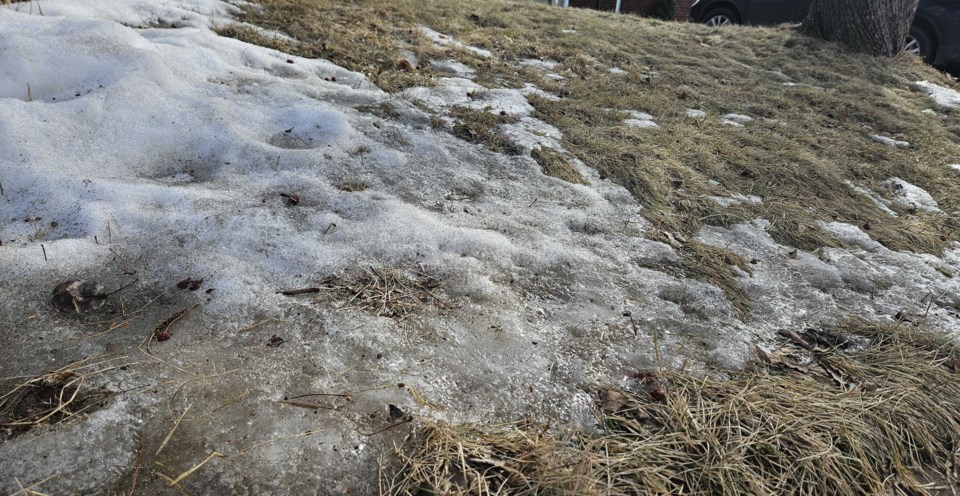MURILLO — Bernie Kamphof can't recall a winter compared to this one — a season that had brought so little snow by the end of February.
At his dairy farm near Murillo, he would normally, at this time of year, be spending a lot of time plowing, creating huge white mounds that might stay around through to April.
This winter's snow shortage may make for an uncertain spring, and Kamphof said he's not complaining just yet.
"It's been a phenomenal winter," Kamphof said on Monday. "It's been great for doing building maintenance because equipment works better when it's not too cold."
It's not just farmers who are marvelling at winter's current stinginess when it comes to the amount of snowfall and lack of cool temperatures.
Veteran Environment Canada meteorologist Geoff Coulson noted that by the end of a normal winter, Thunder Bay would have received 188 centimetres of snow.
It's not even close to being on track for that amount. As of Monday, a mere 67 cm had been recorded for the city, with only 11 cm having fallen so far this month.
"You could get some snow in March, April and May, but the forecast is still calling for it to be milder than normal," Coulson said.
Only 17 cm is currently on the ground at Environment Canada's Hazelwood weather station just north of Thunder Bay.
A decent snow cover helps farmers by sheltering perennial crops, like alfalfa, from winter burn, and by replenishing water tables with a slow and steady spring melt.
A single dairy cow can drink about 100 litres of water per day.
Kamphof, who draws water from three wells, said the shortage of precipitation that has characterized last fall and this winter has caused some wells in the Thunder Bay-area farming belt to run dry.
In the Thunder Bay area, farmers generally like to be out on their fields by the first week of May to prepare for spring planting.
If the lack of snowfall persists, farmers could face dry soils when they go to plant, but that won't necessarily spell disaster.
Kamphof, who plants alfalfa, barley and corn, said a dry spring causes new plants to grow deeper roots, which may help them weather a hotter-than-normal summer if that comes to pass.
"The crop season will turn out the way it will turn out — we don't have a lot of control over that," he said.
Meanwhile, Coulson said Thunder Bay likely won't get more than six centimetres of snow when a big storm blows in from the mid-west U.S. starting tonight.
Areas north of Thunder Bay, such as Geraldton, could receive up to 15 cm from the same system, Coulson said.
The Chronicle Journal / Local Journalism Initiative
